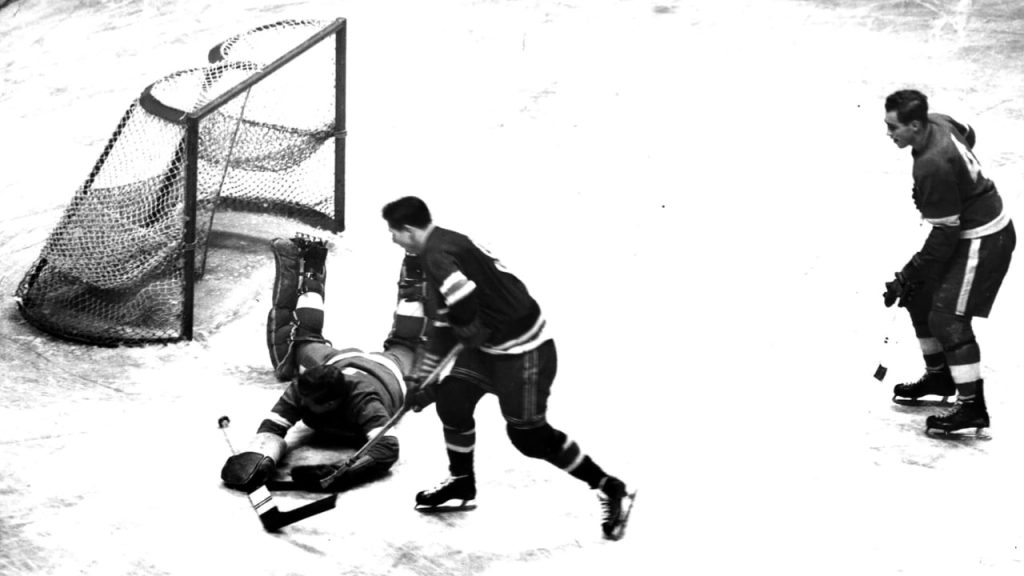The Rangers still had a chance when a critical face-off was held deep in their zone. Originally, New York center Buddy O’Connor was to take the draw but — against his players’ wishes — Coach Patrick chose Edgar Laprade to replace him.
For the New York, it was the kiss of death.
Seconds before the linesperson dropped the puck, Detroit center George Gee motioned his wing, Pete Babando, to move back five feet. Babando obliged and with surgical precision, Gee delivered the puck and Babado took a screened shot past Rayner.
“It was heartbreaking,” Raleigh said, “and the funny thing was that Babando later played with me on the Rangers.”
Nor was that the end of the tribulation. Patrick’s unexpected move would ruin the Rangers’ playoff hopes for five straight years and eventually cost Boucher his job.
“Nobody could have done a better job of coaching the Rangers than Patrick,” Boucher wrote, “but in that Detroit series I sensed that something more was bothering him.”
There was. During the Final, Bruins GM Art Ross undercut Boucher and offered Patrick a similar gig in Boston. It was an unfortunate move, especially since Boucher coached the 1940 Cup-winning Rangers for who Patrick had starred.
“Before skipping out on us, Lynn said he felt a ‘loyalty’ to me, since I started him off in coaching,” Boucher lamented.
That loyalty evaporated when Lynn signed with Boston in 1950. The deserted Boucher never could find an adequate replacement. First, he tried 1940 Cup-winner Neil Colville, then-Rangers and future hockey Hall of Fame right wing Bill Cook and, finally, Muzz Patrick. Lynn’s kid brother.
Meanwhile the Lynn-coached Bruins clinched a playoff berth every season from 1950-51 through 1954-55. Boucher’s Rangers failed to reach the postseason in each.
The devastating effect of Patrick’s walkout came to an end in May 1955, when Boucher was fired and never managed an NHL club again.
As for Lynn Patrick, the closest he ever came to winning the Stanley Cup was on that fateful night at Detroit’s Olympia, when Raleigh’s shot was a half-inch away from beating Lumley.
Decades later, Rayner — long into retirement — was asked if he remembered anything about Raleigh’s shot that hit the post and then went the wrong way.
“Honestly,” Rayner concluded, “I think about it every day!”
